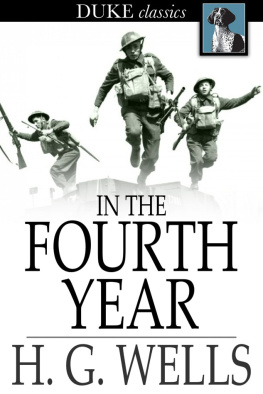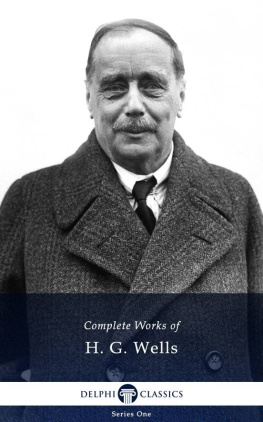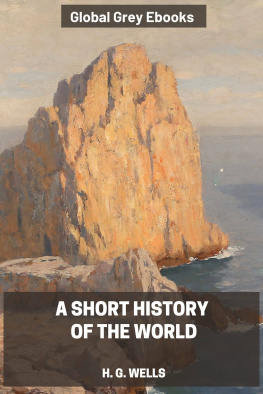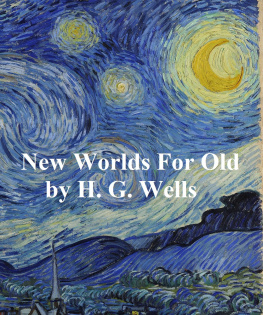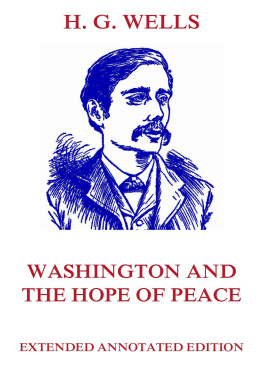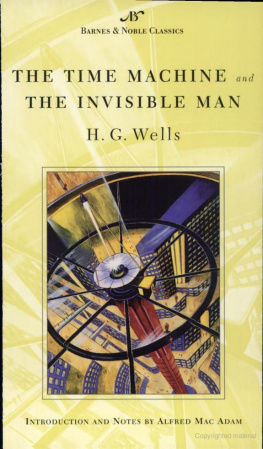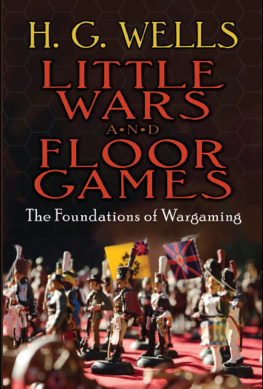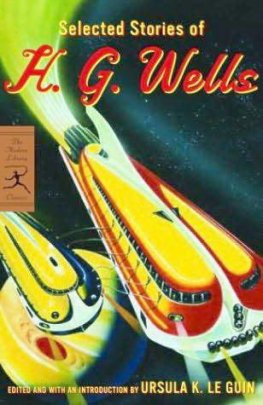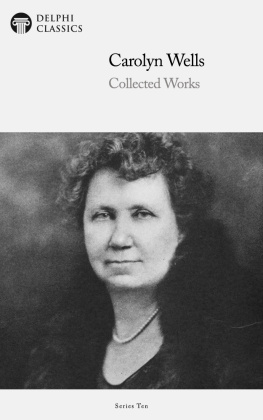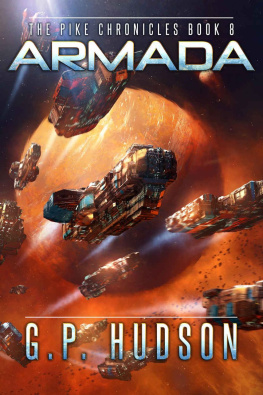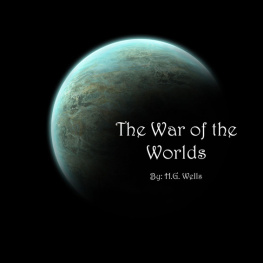IN THE FOURTH YEAR
ANTICIPATIONS OF A WORLD PEACE
* * *
H. G. WELLS
*
In the Fourth Year
Anticipations of a World Peace
First published in 1918
ISBN 978-1-62013-707-9
Duke Classics
2014 Duke Classics and its licensors. All rights reserved.
While every effort has been used to ensure the accuracy and reliability of the information contained in this edition, Duke Classics does not assume liability or responsibility for any errors or omissions in this book. Duke Classics does not accept responsibility for loss suffered as a result of reliance upon the accuracy or currency of information contained in this book.
Contents
*
Preface
*
In the latter half of 1914 a few of us were writing that this war was a"War of Ideas." A phrase, "The War to end War," got into circulation,amidst much sceptical comment. It was a phrase powerful enough to swaymany men, essentially pacifists, towards taking an active part in thewar against German imperialism, but it was a phrase whose chief contentwas its aspiration. People were already writing in those early days ofdisarmament and of the abolition of the armament industry throughout theworld; they realized fully the element of industrial belligerency behindthe shining armour of imperialism, and they denounced the "Krupp-Kaiser"alliance. But against such writing and such thought we had to count, inthose days, great and powerful realities. Even to those who expressedthese ideas there lay visibly upon them the shadow of impracticability;they were very "advanced" ideas in 1914, very Utopian. Against them wasan unbroken mass of mental habit and public tradition. While we talkedof this "war to end war," the diplomatists of the Powers allied againstGermany were busily spinning a disastrous web of greedy secret treaties,were answering aggression by schemes of aggression, were seeing in thetreacherous violence of Germany only the justification forcountervailing evil acts. To them it was only another war for"ascendancy." That was three years and a half ago, and since then this"war of ideas" has gone on to a phase few of us had dared hope for inthose opening days. The Russian revolution put a match to that pile ofsecret treaties and indeed to all the imperialist plans of the Allies;in the end it will burn them all. The greatest of the Western Allies isnow the United States of America, and the Americans have come into thiswar simply for an idea. Three years and a half ago a few of us weresaying this was a war against the idea of imperialism, not Germanimperialism merely, but British and French and Russian imperialism, andwe were saying this not because it was so, but because we hoped to seeit become so. To-day we can say so, because now it is so.
In those days, moreover, we said this is the "war to end war," and westill did not know clearly how. We thought in terms of treaties andalliances. It is largely the detachment and practical genius of thegreat English-speaking nation across the Atlantic that has carried theworld on beyond and replaced that phrase by the phrase, "The League ofNations," a phrase suggesting plainly the organization of a sufficientinstrument by which war may be ended for ever. In 1913 talk of a WorldLeague of Nations would have seemed, to the extremest pitch, "Utopian."To-day the project has an air not only of being so practicable, but ofbeing so urgent and necessary and so manifestly the sane thing beforemankind that not to be busied upon it, not to be making it more widelyknown and better understood, not to be working out its problems andbringing it about, is to be living outside of the contemporary life ofthe world. For a book upon any other subject at the present time someapology may be necessary, but a book upon this subject is as natural athing to produce now as a pair of skates in winter when the ice beginsto bear.
All we writers find ourselves engaged perforce in some part or other ofa world-wide propaganda of this the most creative and hopeful ofpolitical ideas that has ever dawned upon the consciousness of mankind.With no concerted plan we feel called upon to serve it. And in noconnection would one so like to think oneself un-original as in thisconnection. It would be a dismaying thing to realize that one werewriting anything here which was not the possible thought of greatmultitudes of other people, and capable of becoming the common thoughtof mankind. One writes in such a book as this not to express oneself butto swell a chorus. The idea of the League of Nations is so great a onethat it may well override the pretensions and command the allegiance ofkings; much more does it claim the self-subjugation of the journalisticwriter. Our innumerable books upon this great edifice of a World Peacedo not constitute a scramble for attention, but an attempt to express inevery variety of phrase and aspect this one system of ideas which nowpossesses us all. In the same way the elementary facts and ideas of thescience of chemistry might conceivably be put completely and fully intoone text-book, but, as a matter of fact, it is far more convenient totell that same story over in a thousand different forms, in a text-bookfor boys here, for a different sort or class of boy there, for adultstudents, for reference, for people expert in mathematics, for peopleunused to the scientific method, and so on. For the last year the writerhas been doing what he canand a number of other writers have beendoing what they canto bring about a united declaration of all theAtlantic Allies in favour of a League of Nations, and to define thenecessary nature of that League. He has, in the course of this work,written a series of articles upon the League and upon the necessarysacrifices of preconceptions that the idea involves in the Londonpress. He has also been trying to clear his own mind upon the realmeaning of that ambiguous word "democracy," for which the League is tomake the world "safe." The bulk of this book is made up of thesediscussions. For a very considerable number of readers, it may be wellto admit here, it can have no possible interest; they will have come atthese questions themselves from different angles and they will have longsince got to their own conclusions. But there may be others whose angleof approach may be similar to the writer's, who may have asked some ormost of the questions he has had to ask, and who may be activelyinterested in the answers and the working out of the answers he has madeto these questions. For them this book is printed.
H. G. WELLS.
May, 1918.
It is a dangerous thing to recommend specific books out of so large andvarious a literature as the "League of Nations" idea has alreadyproduced, but the reader who wishes to reach beyond the range of thisbook, or who does not like its tone and method, will probably findsomething to meet his needs and tastes better in Marburg's "League ofNations," a straightforward account of the American side of the movementby the former United States Minister in Belgium, on the one hand, or inthe concluding parts of Mr. Fayle's "Great Settlement" (1915), a franklysceptical treatment from the British Imperialist point of view, on theother. An illuminating discussion, advocating peace treaties rather thana league, is Sir Walter Phillimore's "Three Centuries of Treaties." Twoexcellent books from America, that chance to be on my table, are Mr.Goldsmith's "League to Enforce Peace" and "A World in Ferment" byPresident Nicholas Murray Butler. Mater's "Socit des Nations" (Didier)is an able presentation of a French point of view. Brailsford's "ALeague of Nations" is already a classic of the movement in England, anda very full and thorough book; and Hobson's "Towards InternationalGovernment" is a very sympathetic contribution from the English liberalleft; but the reader must understand that these two writers seemdisposed to welcome a peace with an unrevolutionized Germany, an idea towhich, in common with most British people, I am bitterly opposed.Walsh's "World Rebuilt" is a good exhortation, and Mugge's "Parliamentof Man" is fresh and sane and able. The omnivorous reader will find goodsense and quaint English in Judge Mejdell's "

